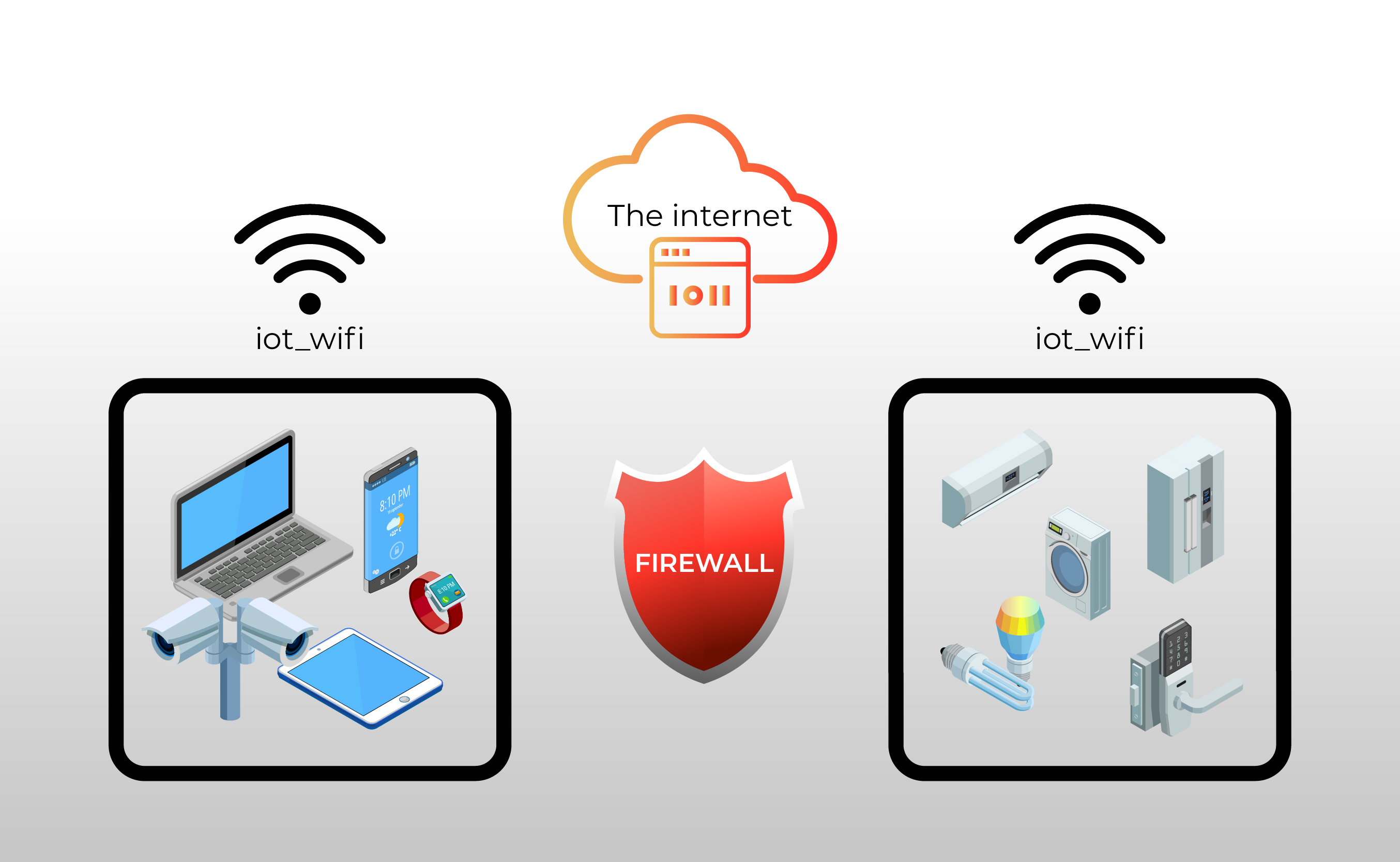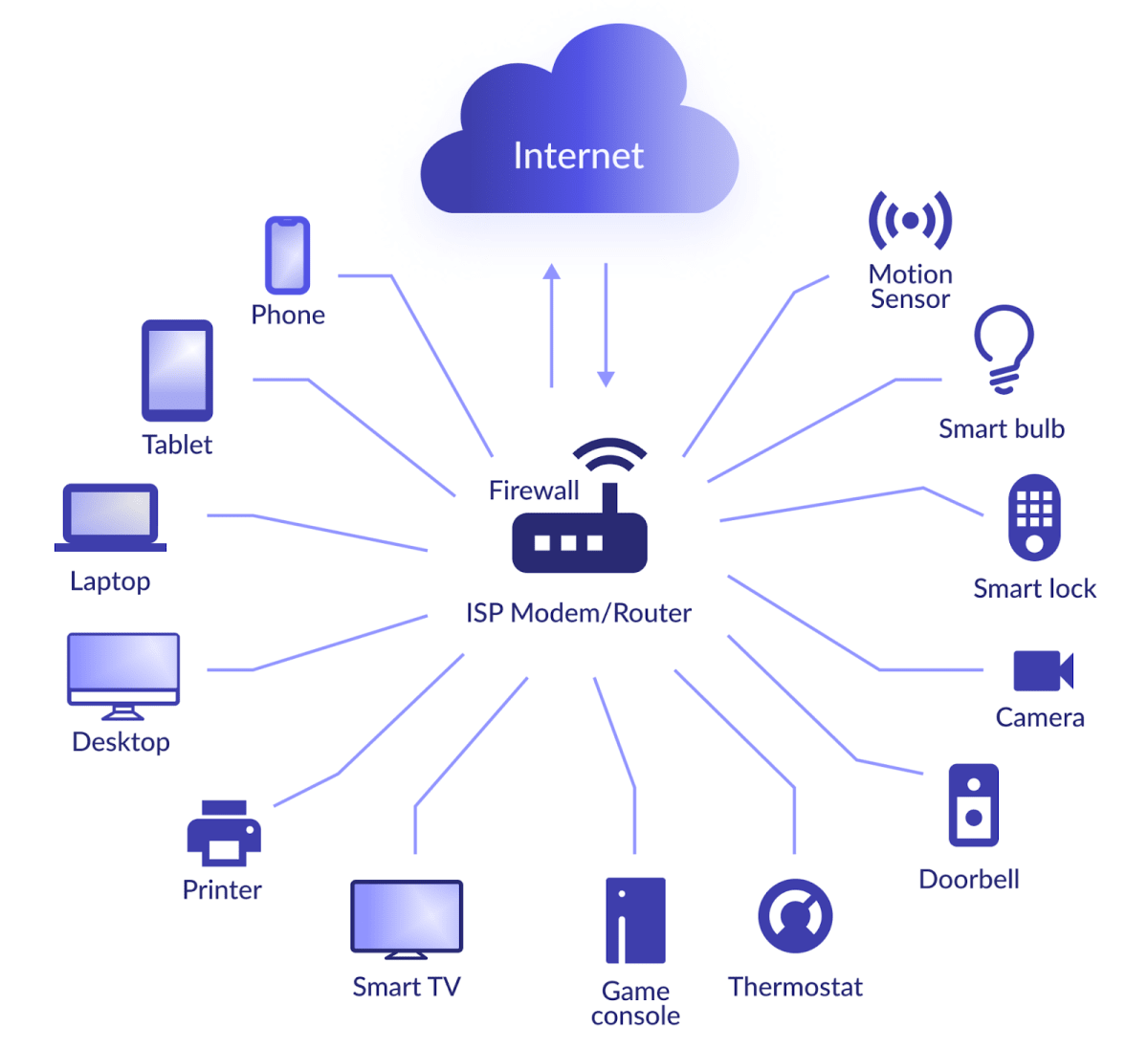Comprehensive Guide To Firewall IoT Devices: Enhancing Security In The Connected World
As the Internet of Things (IoT) continues to grow, ensuring the security of IoT devices has become more critical than ever. Firewalls for IoT devices play a pivotal role in safeguarding your network from unauthorized access and cyber threats. However, not all firewalls are created equal, and understanding how to effectively deploy and manage them is essential for maintaining a secure digital environment.
In this article, we will delve into the world of IoT firewalls, exploring their importance, functionalities, and best practices for implementation. Whether you're a tech enthusiast, a small business owner, or an IT professional, understanding the role of firewalls in IoT security is crucial to protecting your devices and data.
By the end of this guide, you'll have a clear understanding of how firewall IoT devices work, the benefits they provide, and the steps you can take to enhance your IoT network's security. Let's get started!
Read also:Brian Tyler Cohen Husband The Man Behind The Music And Beyond
Table of Contents
- Introduction to Firewall IoT Devices
- Why Are IoT Firewalls Important?
- Types of IoT Firewalls
- How Do IoT Firewalls Work?
- Benefits of Using Firewalls for IoT Devices
- Best Practices for Implementing IoT Firewalls
- Common IoT Security Challenges
- How to Select the Right IoT Firewall
- Case Studies of IoT Firewall Implementation
- Future of IoT Firewalls
Introduction to Firewall IoT Devices
IoT devices have revolutionized the way we interact with technology, enabling connectivity and automation across various industries. From smart homes to industrial automation, IoT devices are transforming everyday objects into intelligent systems. However, this increased connectivity also brings significant security risks.
Firewalls for IoT devices act as the first line of defense against unauthorized access and cyber threats. They monitor and control incoming and outgoing network traffic based on predetermined security rules. By implementing firewalls, organizations and individuals can protect their IoT devices from potential attacks and ensure the integrity of their data.
Why Are IoT Firewalls Important?
The importance of IoT firewalls cannot be overstated, especially in today's hyper-connected world. Here are some key reasons why firewalls are essential for IoT security:
- Preventing unauthorized access to IoT devices
- Blocking malicious traffic and potential cyber threats
- Ensuring compliance with industry regulations
- Protecting sensitive data and maintaining privacy
As IoT devices become more integrated into our daily lives, the need for robust security measures like firewalls becomes increasingly critical.
Types of IoT Firewalls
Hardware Firewalls
Hardware firewalls are physical devices that are installed between the network and the internet. They provide a dedicated layer of security and are often used in enterprise environments.
Software Firewalls
Software firewalls are installed on individual devices or servers and offer more granular control over network traffic. They are ideal for small businesses and personal use.
Read also:Violet Myers Twitter Unpacking The Buzz Around Her Digital Footprint
Cloud-Based Firewalls
Cloud-based firewalls leverage the power of cloud computing to provide scalable and flexible security solutions. They are particularly useful for organizations with distributed networks.
How Do IoT Firewalls Work?
IoT firewalls operate by analyzing network traffic and applying security rules to determine which traffic should be allowed or blocked. They use various techniques, such as packet filtering, stateful inspection, and application-layer filtering, to ensure the security of IoT devices.
Packet filtering examines individual packets of data and compares them against a set of predefined rules. Stateful inspection tracks the state of active connections and ensures that only legitimate traffic is allowed. Application-layer filtering goes a step further by inspecting the content of the data packets to identify potential threats.
Benefits of Using Firewalls for IoT Devices
Implementing firewalls for IoT devices offers numerous benefits, including:
- Enhanced network security
- Improved data privacy
- Protection against malware and cyberattacks
- Compliance with industry standards
- Reduced risk of data breaches
By leveraging these benefits, organizations can create a secure and reliable IoT ecosystem.
Best Practices for Implementing IoT Firewalls
To maximize the effectiveness of IoT firewalls, it's essential to follow best practices. Here are some tips to consider:
- Regularly update firewall software and firmware
- Implement strong access controls and authentication mechanisms
- Monitor network traffic and analyze logs for suspicious activity
- Conduct regular security audits and vulnerability assessments
- Provide training and awareness programs for employees
By adhering to these practices, you can ensure that your IoT firewalls are functioning optimally and providing the necessary protection.
Common IoT Security Challenges
Despite the benefits of IoT firewalls, several security challenges persist. These include:
- Limited processing power and memory in IoT devices
- Fragmented ecosystems and lack of standardization
- Insufficient encryption and authentication mechanisms
- Rapidly evolving cyber threats and attack vectors
Addressing these challenges requires a multi-faceted approach that combines robust security measures with continuous monitoring and updates.
How to Select the Right IoT Firewall
Choosing the right IoT firewall depends on several factors, including:
- The size and complexity of your network
- The types of IoT devices you use
- Your budget and resource constraints
- The level of security required for your applications
Consider consulting with cybersecurity experts and conducting thorough research to identify the best solution for your specific needs.
Case Studies of IoT Firewall Implementation
Case Study 1: Smart Home Security
A leading smart home provider implemented IoT firewalls to protect their customers' devices from unauthorized access. The solution significantly reduced the risk of data breaches and improved overall security.
Case Study 2: Industrial Automation
An industrial manufacturing company deployed IoT firewalls to secure their connected machinery. This resulted in increased operational efficiency and reduced downtime due to cyberattacks.
Future of IoT Firewalls
As IoT technology continues to evolve, so too will the role of firewalls in securing connected devices. Emerging trends such as artificial intelligence and machine learning are expected to enhance the capabilities of IoT firewalls, enabling them to detect and respond to threats more effectively.
Additionally, the development of standardized security protocols and frameworks will help address some of the current challenges in IoT security, making it easier for organizations to implement and manage firewalls.
Conclusion
In conclusion, firewalls for IoT devices are an essential component of any comprehensive security strategy. By understanding their importance, functionalities, and best practices for implementation, you can protect your IoT devices and data from potential threats.
We encourage you to take action by implementing IoT firewalls in your network and staying informed about the latest developments in cybersecurity. Share your thoughts and experiences in the comments below, and don't forget to explore our other articles for more insights on IoT security.
Data Sources:


